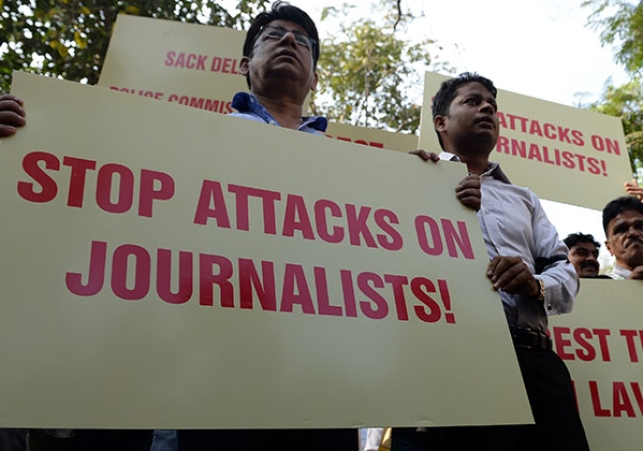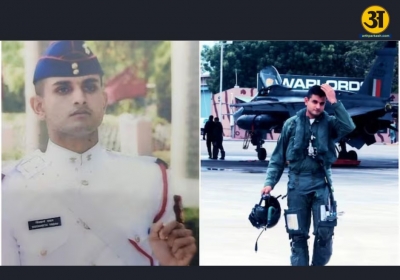
Where is Press Freedom in India heading to?
Where is Press Freedom in India heading to?
- By Saniya --
- Thursday, 07 Jul, 2022
Press Freedom is dwindling with each passing day in the world's largest democracy. According to a report from Reporters Without Borders(RSF), India's press freedom fell from 142 in 2021 to 150 in 2022. This was the country's lowest rank in the index ever. The number of journalists facing intimidation from the ruling establishment and arrests/police torture have also witnessed a surge in recent years.
RSF states that under the garb of tackling the Covid-19 pandemic, the government have waged a guerrilla war of lawsuits against media outlets whose coverage of the pandemic contradicted official statements. Various independent reports said that 55 journalists had been arrested, booked, and threatened for reporting on COVID-19 during the pandemic. A study has found that 154 journalists were detained, arrested, or interrogated between 2010 and 2020 in India, and 40 percent of these cases were reported in 2020 alone.
A Committee to Protect Journalists 2021 report indicated that India "has the highest number of journalists – four – confirmed to have been murdered in retaliation for their work." The report lists Avinash Jha, Chennakeshavalu, Manish Kumar Singh, and Sulabh Srivastava as being "murdered", with journalist Raman Kashyap cited as being killed while on a "dangerous assignment." The concerted effort to criminalize journalists has reached an extreme point that the Kashmir model of menacing journalists is becoming more prominent than ever ever since the revocation of Article 370, and assault on journalism has grown exponentially in the J& K region.
Recently, Kashmir-based journalist and editor of news portal Kasmir Walla Fahad Shah was arrested for 'glorifying terror' in social media posts. Police arrested Shah for his publication's coverage of a gunfight between government forces and militants, during which a 17-year-old named Inayat Ahmad Mir was killed. He was arrested just weeks after pro-government journalists took over the Kashmir Press Club and shut it down, citing a "potential law-and-order situation." Journalism in Kashmir is now on the brink of decline. In 2018, renowned newspaper journalist Shujaat Bukhari was shot dead in Srinagar.
To further restrict press freedom in the region in June 2020, the Modi administration, which directly oversees the territory of Jammu and Kashmir, released a 53-page "New Media Policy 2020," which gave unrestricted powers to mid-level bureaucrats in the local administration to determine what constitutes "fake news" or "plagiarism" and what is "unethical," "seditious," or "anti-national." Local politicians were also given the power to initiate legal proceedings against editors, publishers, and journalists without any evidence.
It is not just Kashmir that is facing the menace of the ruling establishments' crackdown on press freedom. Siddique Kappan, a Delhi-based Malayalee journalist was arrested on October 2020 while on its way to Hathras to report the brutal gang rape and murder of a Dalit girl by upper-caste men. He was arrested for planning to 'foment trouble' and booked under the draconian Unlawful Activities Prevention Act (UAPA) and other penal provisions.2 years down the lane, Kappan, 41, is still behind bars for merely doing his job as a journalist.
Mohammed Zubair,a fact-checker/Journalist was also arrested recently on allegations that can only be called baseless. Zubair, who has been a staunch critic of the Modi regime, was arrested for posting a screen grab from a movie which showed Hanuman Hotel getting changed to Honeymoon hotel. The tweet landed him an FIR for allegedly hurting religious sentiments. One thing is clear is Journalism in India is not an abode for free speech and that India's laws and Constitution – far from being protective features – will be weaponised against those who do not fall in line.
Every journalist who reports on matters regarded as inimical to the interests of the country's ruling establishment is bound to face intimidation from authorities. The tide of state criminality against journalists is likely to continue for more years to come as long as Journalists hold the ruling government accountable for its deeds.





